1. You Need a Huge Budget to Start RVing

A lot of people think you need a six-figure rig and top-tier gear to get into RVing. But the truth is, plenty of first-timers hit the road in older used RVs or even converted vans and do just fine. Starting small or used lets you learn without sinking your savings. What really matters is how you maintain your RV and manage your lifestyle on the road.
Going big too fast can leave you with debt and regret. Many people realize later that they didn’t need all the bells and whistles. Simpler setups often mean fewer repairs and less stress. You can always upgrade later once you know what you actually need.
2. RV Parks Are Always Cheaper Than Hotels
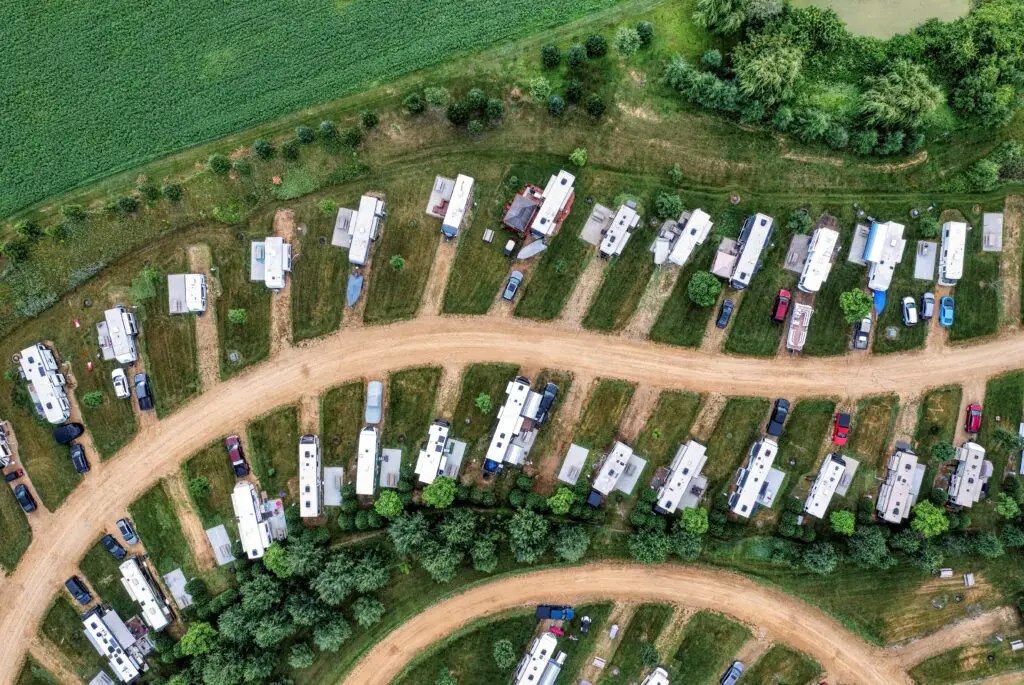
It’s easy to assume RV parks save you money compared to hotels, but the reality varies a lot. Some RV resorts charge $75 to $150 per night—about the same as or more than a mid-range hotel. If you stay in high-demand areas or during peak season, prices climb fast. And that’s before adding in fuel, maintenance, and site hookup fees.
First-timers often overlook those hidden costs. Plus, not all parks include amenities like Wi-Fi or showers. If you’re not boondocking (camping off-grid), expenses rack up. It’s worth comparing options before assuming RV life is always the budget route.
3. Boondocking Is Free and Easy
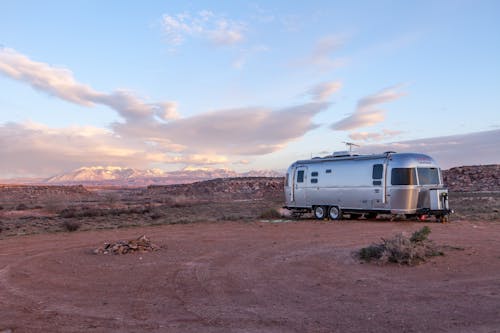
Boondocking can definitely save money, but it’s not as simple as just parking anywhere. Public land use comes with rules, and breaking them can get you fined. You also need to be self-sufficient with water, power, and waste management. Many newbies underestimate how quickly tanks fill or batteries die.
Without solar panels or a generator, you could be stuck without power. And not all areas allow overnight stays even if they look remote. Apps and maps help, but they don’t replace responsible planning. Done wrong, boondocking can cost more in cleanup or citations than a campground would’ve.
4. You Don’t Need to Worry About Weight
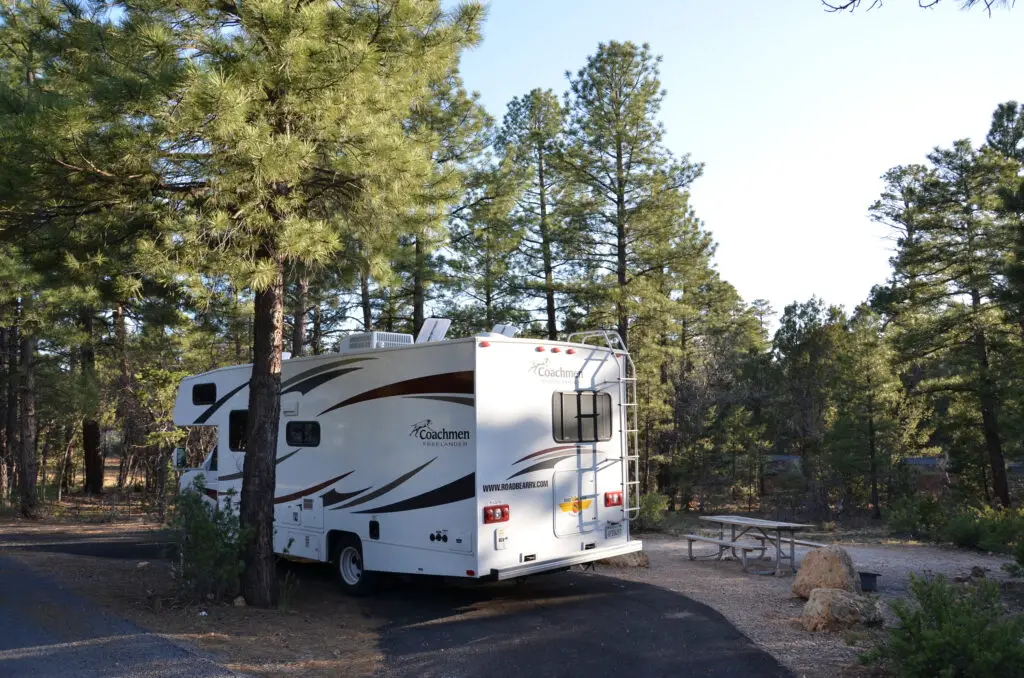
One of the biggest mistakes newbies make is ignoring the weight of their RV or what they’re towing. Overloading can damage your axles, blow tires, or make your vehicle unsafe to drive. Each RV has a GVWR (Gross Vehicle Weight Rating), and going over it isn’t just illegal—it’s dangerous. Insurance may even deny claims if you’re found overloaded.
Weight also affects fuel economy and braking distance. Many people pack like they’re moving house, not realizing how fast it adds up. You need to account for water tanks, gear, food, and people. Understanding your load limits from day one will save money and headaches.
5. Any Vehicle Can Tow an RV
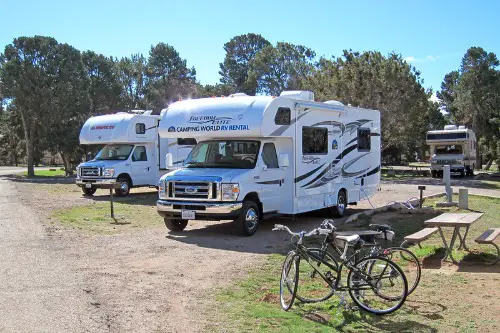
Just because your SUV has a hitch doesn’t mean it’s ready to tow a travel trailer. Tow ratings vary by model, and exceeding them can cause serious mechanical problems or safety issues. First-timers often assume they can “just try it out,” only to end up with transmission damage or worse. Towing capacity includes the trailer, gear, and even passengers.
Always check your vehicle’s tow rating and compare it to your trailer’s loaded weight. Don’t forget tongue weight—too much or too little causes sway. A proper weight-distribution hitch can help, but it’s not a cure-all. If you’re not sure, get a professional setup or at least a weigh-in.
6. Full-Time RVing Saves Tons of Money
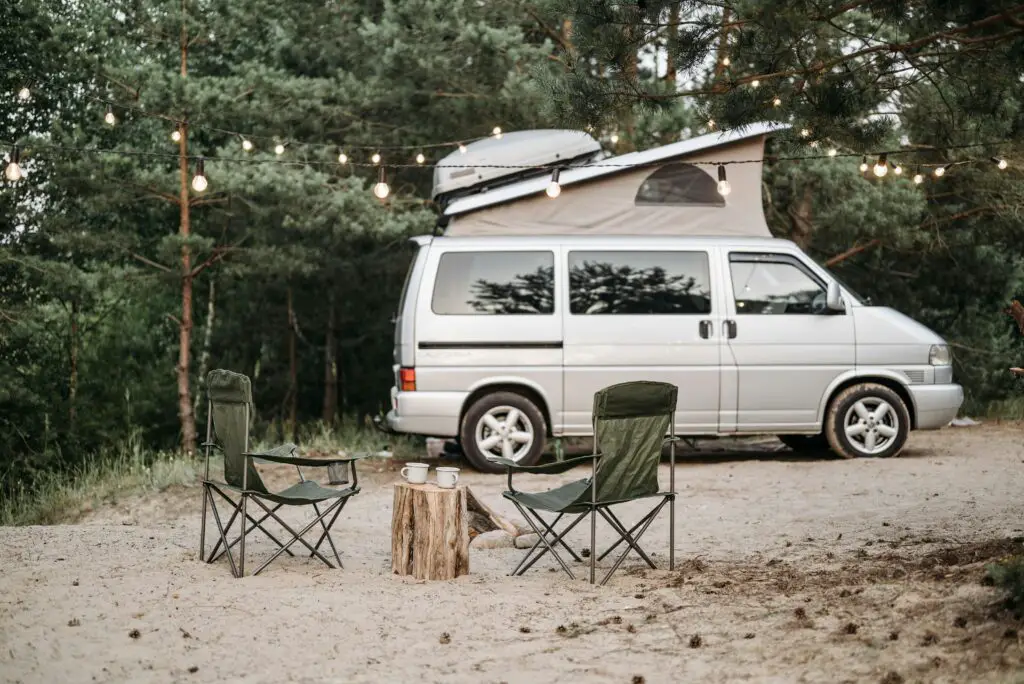
Going full-time can save money, but only if you downsize and budget carefully. Many first-timers keep their old spending habits and find RV living just as expensive—or more. Monthly campground fees, fuel, repairs, and storage can eat away at any savings. And with rising campground rates, it’s not the bargain it once was.
You also need backup funds for emergencies and maintenance. A breakdown in the middle of nowhere isn’t cheap. Medical insurance, internet, and mail forwarding are ongoing costs people forget. Full-time RVing is a lifestyle shift, not just a budget hack.
7. RV Maintenance Isn’t a Big Deal

An RV is basically a home on wheels, and that means double the maintenance. You’ve got plumbing, electrical, propane, tires, and a roof to worry about—just to start. Ignoring routine maintenance leads to costly problems like water damage or failed systems. And since many RV shops have long waitlists, delays can strand you for weeks.
Seals and caulking need regular checks to prevent leaks. Tire pressure should be monitored constantly, especially when temperatures change. First-timers often skip this stuff until something breaks. A basic maintenance schedule can prevent most problems and save thousands.
8. You Can Just Wing It Without Reservations

While some love the spontaneity of RV life, it’s not always practical—especially in busy seasons. Popular campgrounds book up months in advance, and showing up unplanned can leave you stuck or forced to pay top dollar. Holiday weekends and national parks are especially competitive. New RVers often assume there’s always space somewhere.
Apps like Campendium or Recreation.gov help, but they can’t guarantee last-minute luck. Free spots fill up fast, and even boondocking areas can get crowded. Having a loose plan helps reduce stress and avoids unnecessary expenses. Spontaneity is great, but so is knowing where you’ll sleep.
9. All Campgrounds Are the Same

Campgrounds vary wildly in quality, rules, and amenities. Some are quiet and rustic; others are packed and feel more like a parking lot. First-timers often don’t realize there’s a big difference between national park sites, private RV resorts, and overnight parking at a casino. Prices and experiences reflect that variety.
Some parks limit rig size or don’t allow older RVs. Others have hookups, while some are dry camping only. Reviews and photos are your best friend here. Don’t assume a “campground” means a good night’s sleep.
10. You’ll Always Have Internet

In today’s world, reliable internet feels like a given—but it’s far from guaranteed in an RV. Many campgrounds still have terrible or no Wi-Fi, and cellular coverage is spotty in remote areas. New RVers relying on Zoom, streaming, or remote work quickly hit frustrating limits. Streaming video or uploading files can chew through data caps fast.
Cell boosters and mobile routers help, but they’re not magic. Even with gear, you’ll hit dead zones. Planning ahead with coverage maps and offline tools is crucial. Otherwise, you might be driving 40 miles just to check your email.
11. You Can Legally Park Overnight Anywhere

A lot of beginners assume it’s fine to sleep overnight in any parking lot or side street. But many cities have laws against it, and businesses like Walmart have tightened policies. Even public lands have rules on where and how long you can stay. Ignoring them can lead to fines or being woken up by law enforcement.
Apps may list places as “okay,” but that info gets outdated fast. Always check signs and call ahead when possible. Overnighting without permission gives RVers a bad name. Responsible parking protects the lifestyle for everyone.
12. Gas Mileage Isn’t That Bad
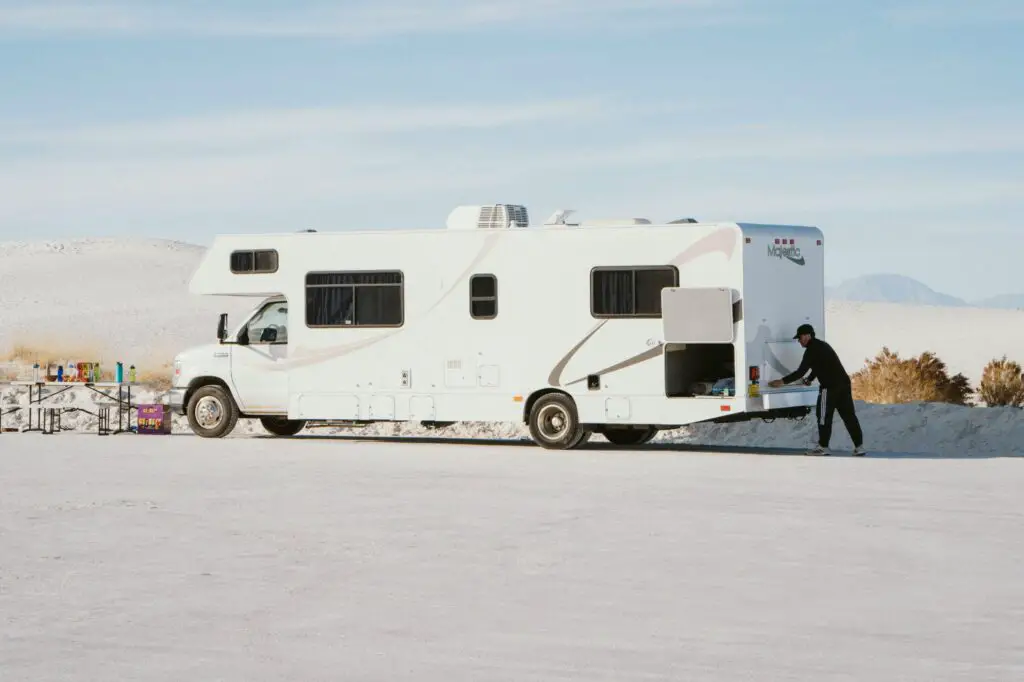
The reality? It is. Most motorhomes average 6 to 10 miles per gallon, and towing setups don’t fare much better. First-timers often underestimate how fast fuel costs pile up—especially on long trips or in mountainous terrain.
You can cut fuel use by driving slower and avoiding unnecessary side trips. But even then, fuel is a major part of your budget. Fuel prices vary widely, and some remote areas offer few options. Plan your route with gas stops in mind, or prepare to pay more than expected.
13. RVing Is Always Relaxing

It can be, but that takes planning, patience, and a flexible mindset. Breakdowns, weather, cramped spaces, and tight travel schedules can create just as much stress as any other lifestyle. First-timers often expect Instagram serenity but get reality instead. Like anything, RVing has its tough days.
The freedom is real, but so are the challenges. If you expect bumps in the road—literally and figuratively—you’ll adapt faster. It helps to approach RV life as an adventure, not a constant vacation. With the right mindset, the freedom is worth it.
This post 13 RV Myths That Keep First-Timers Broke and Stuck was first published on Greenhouse Black.
